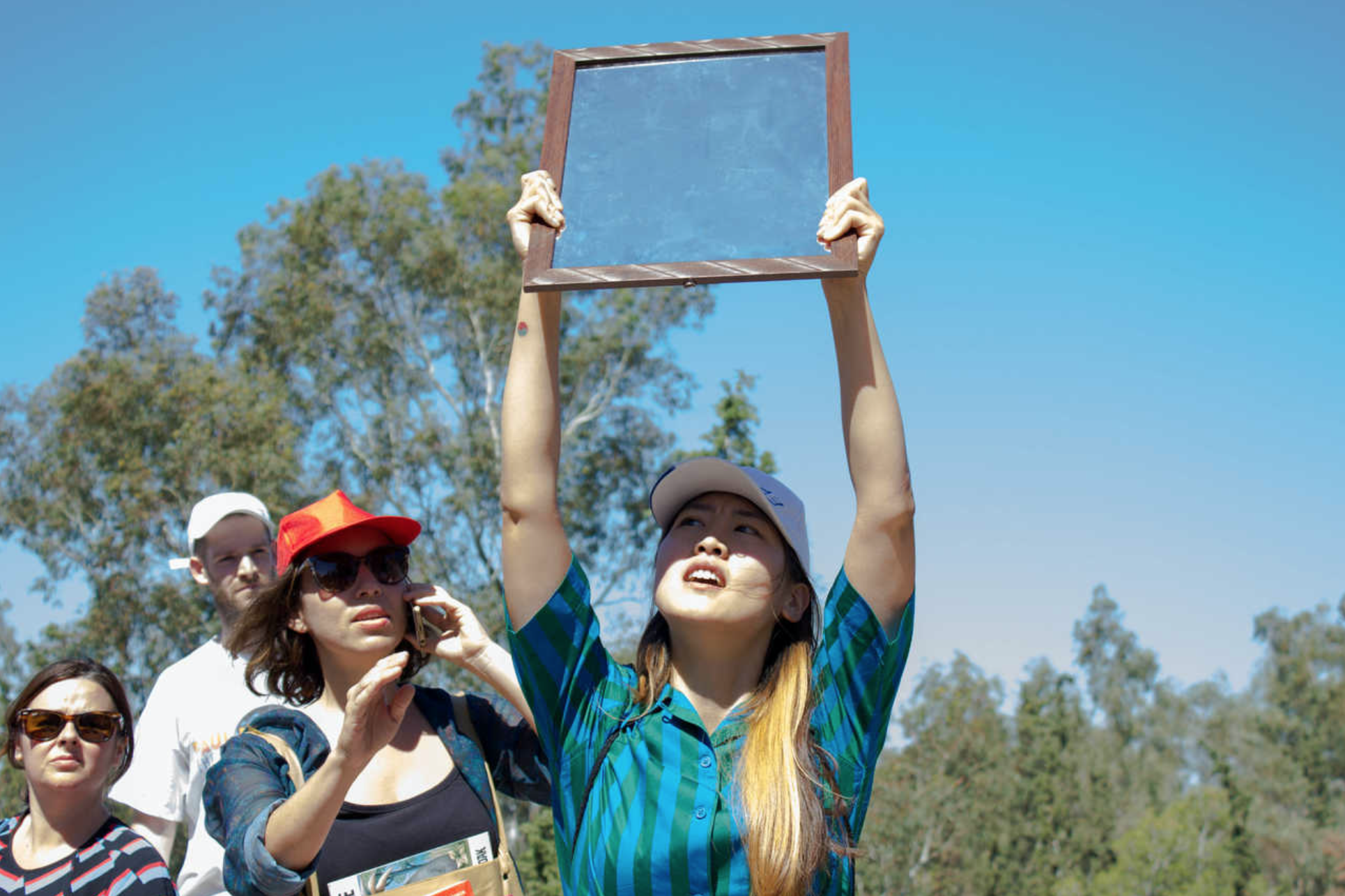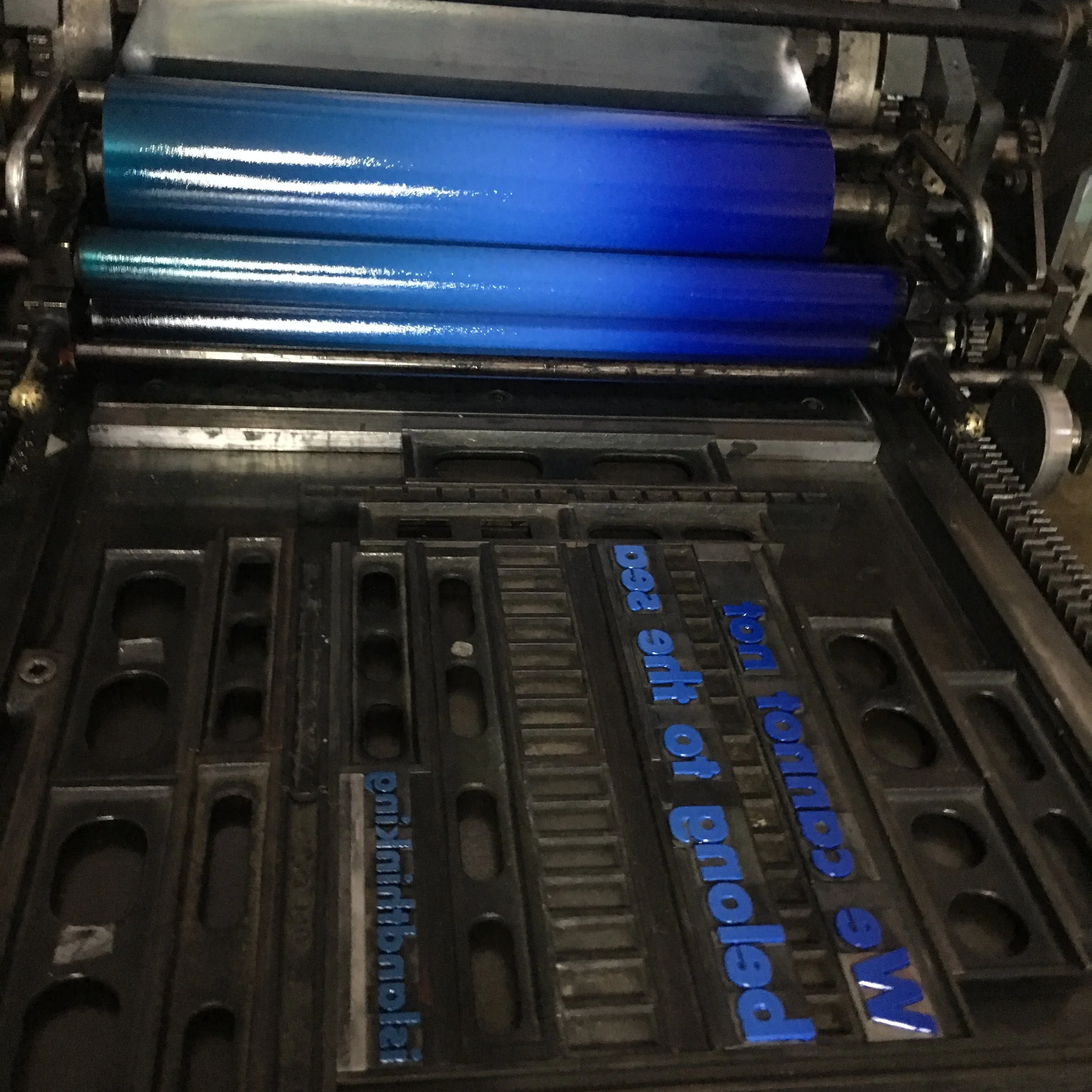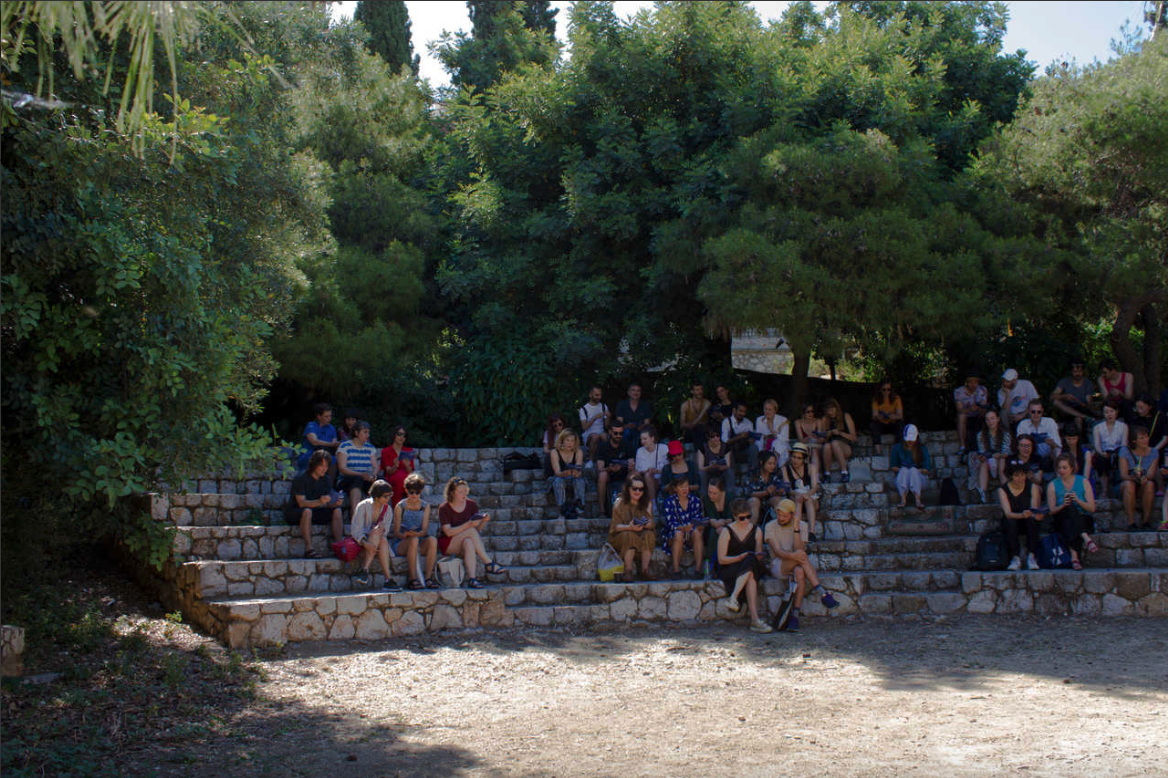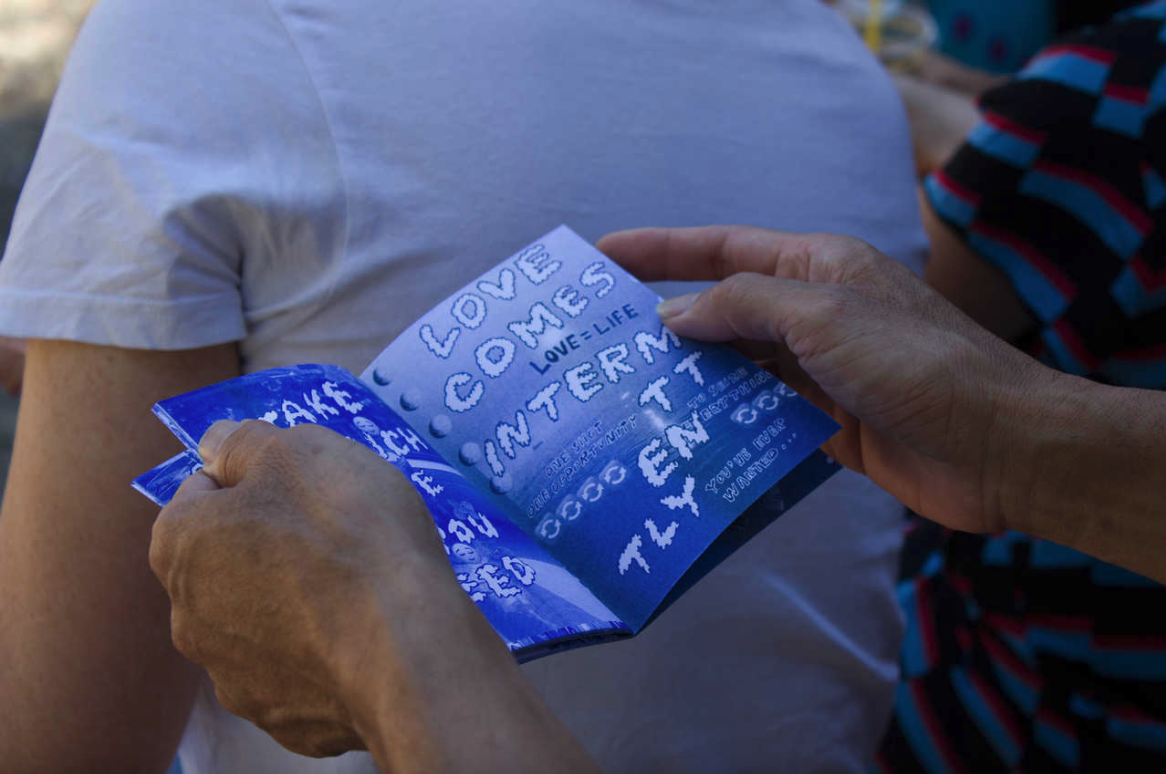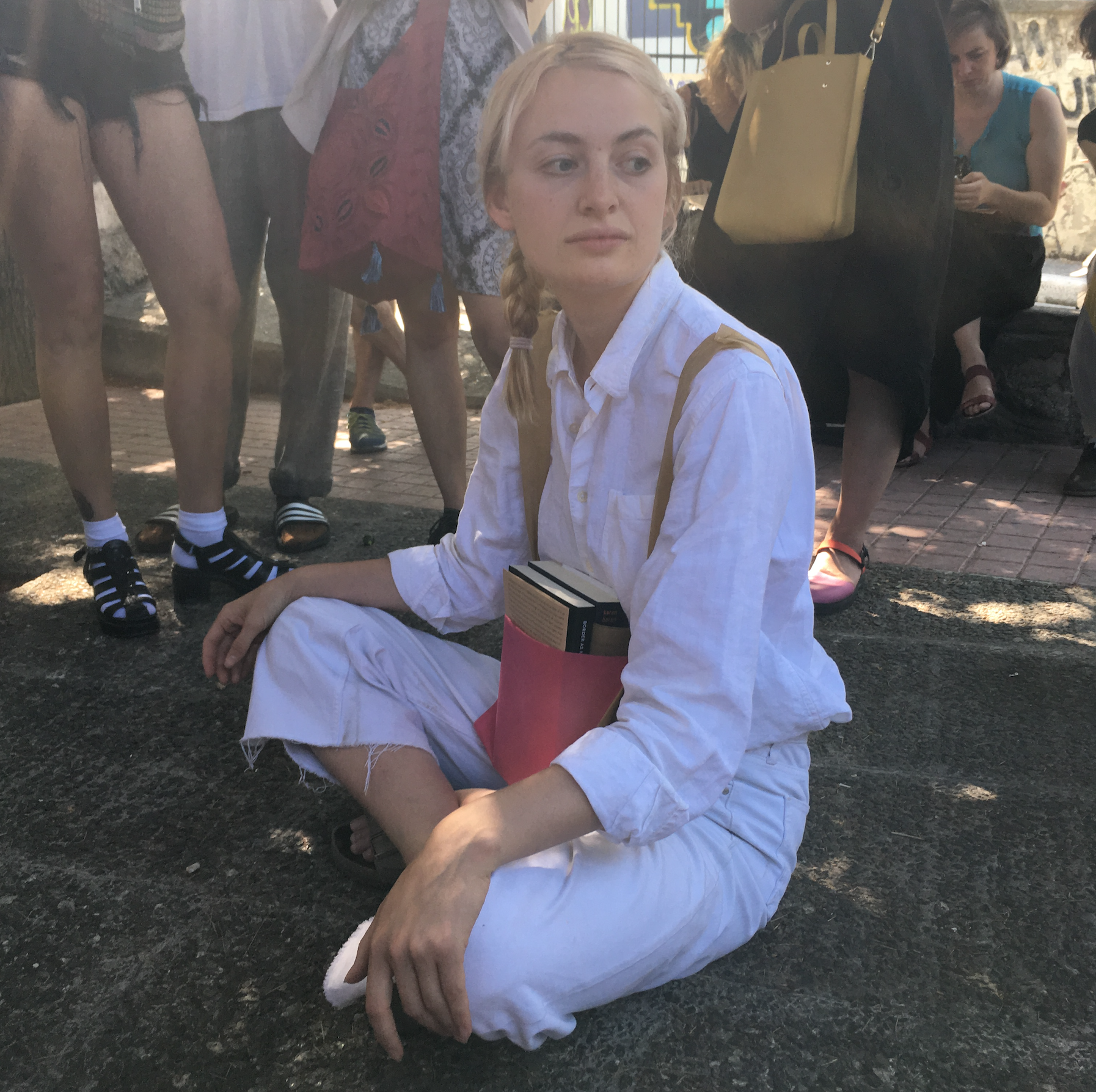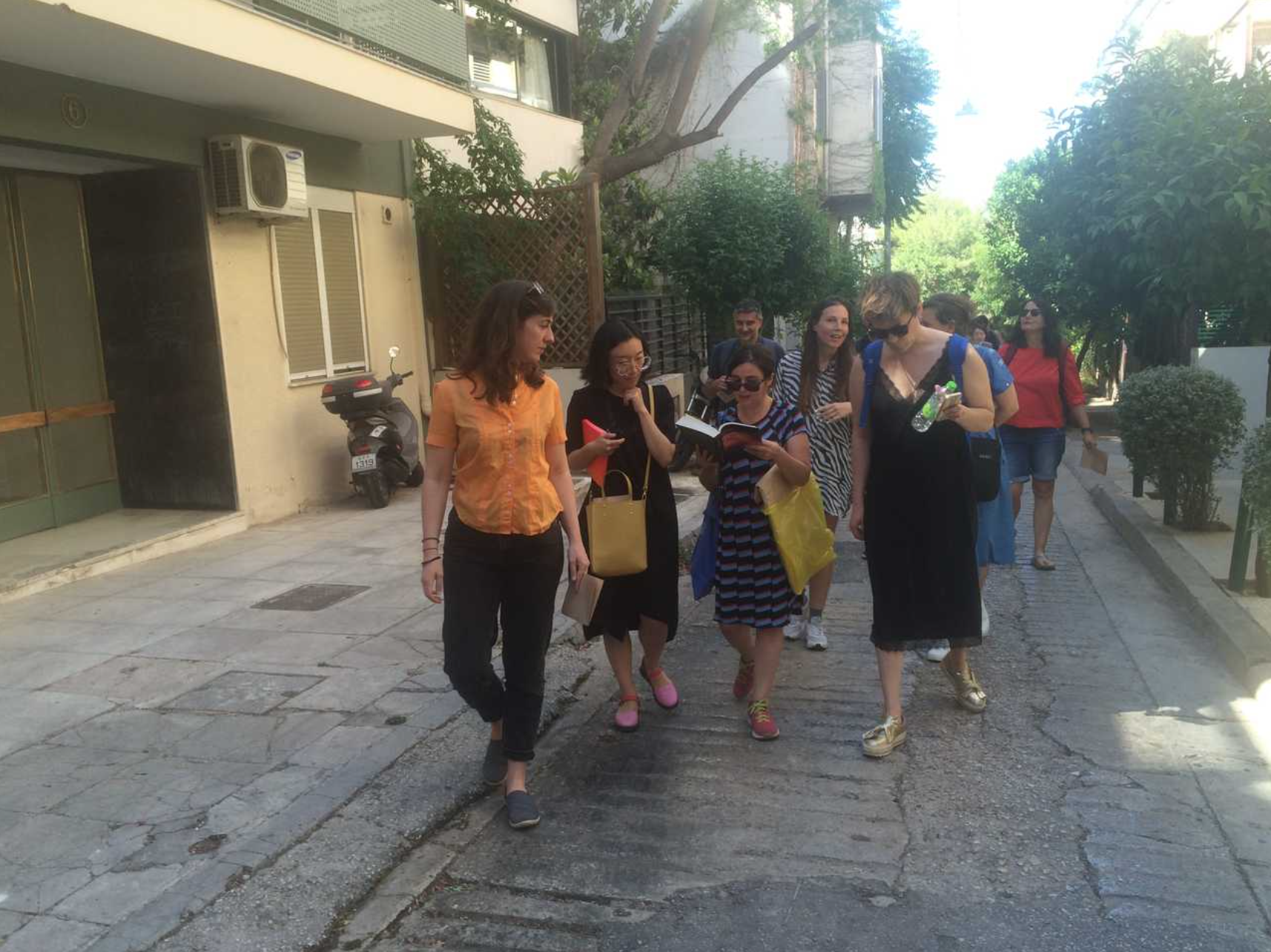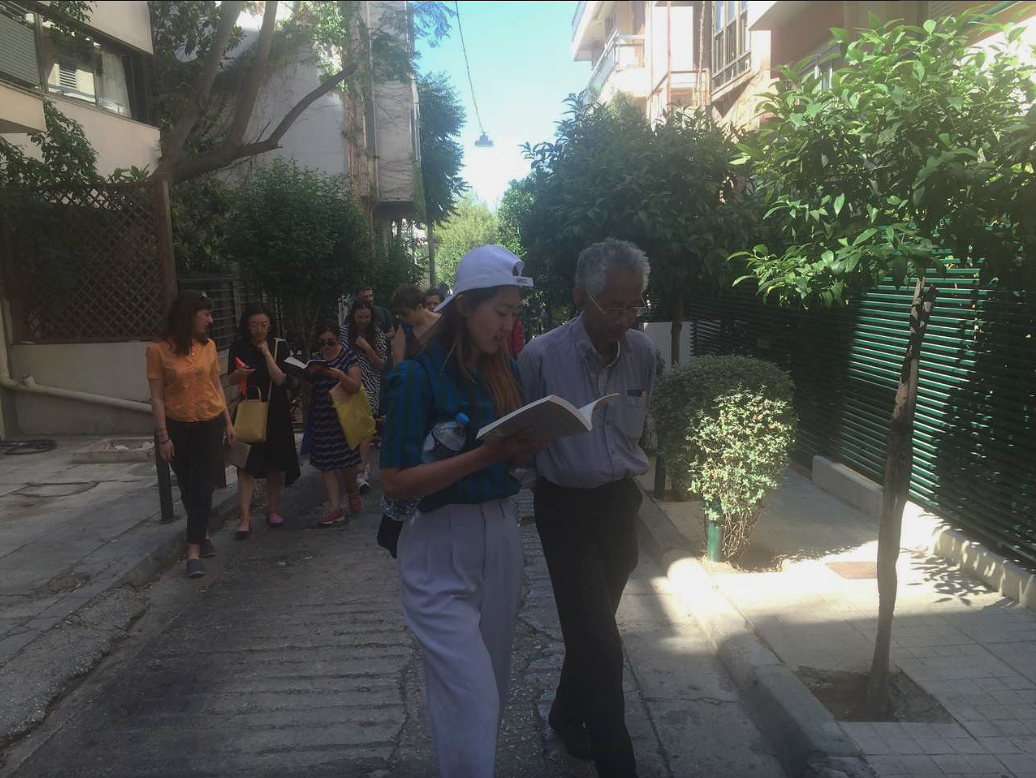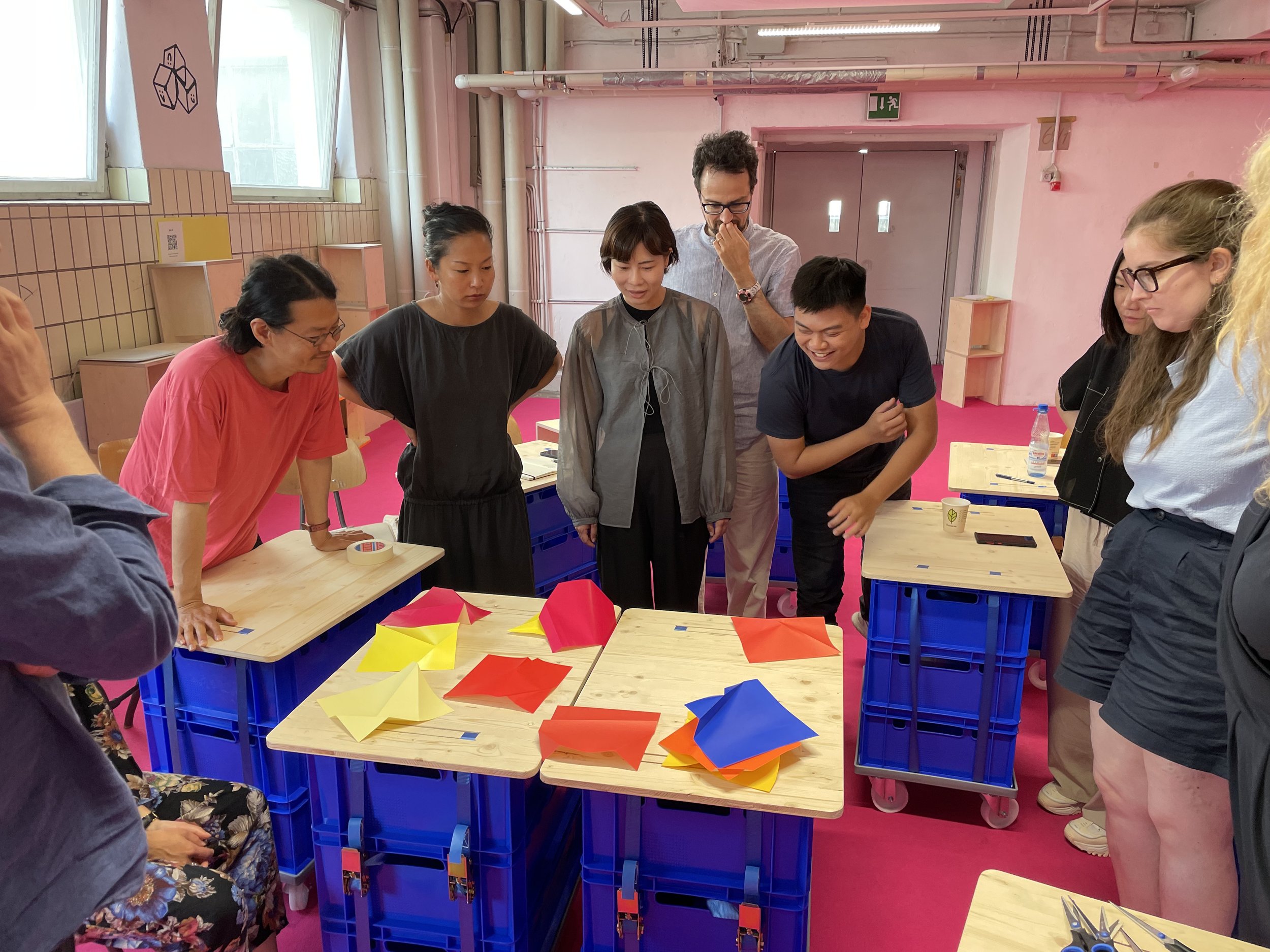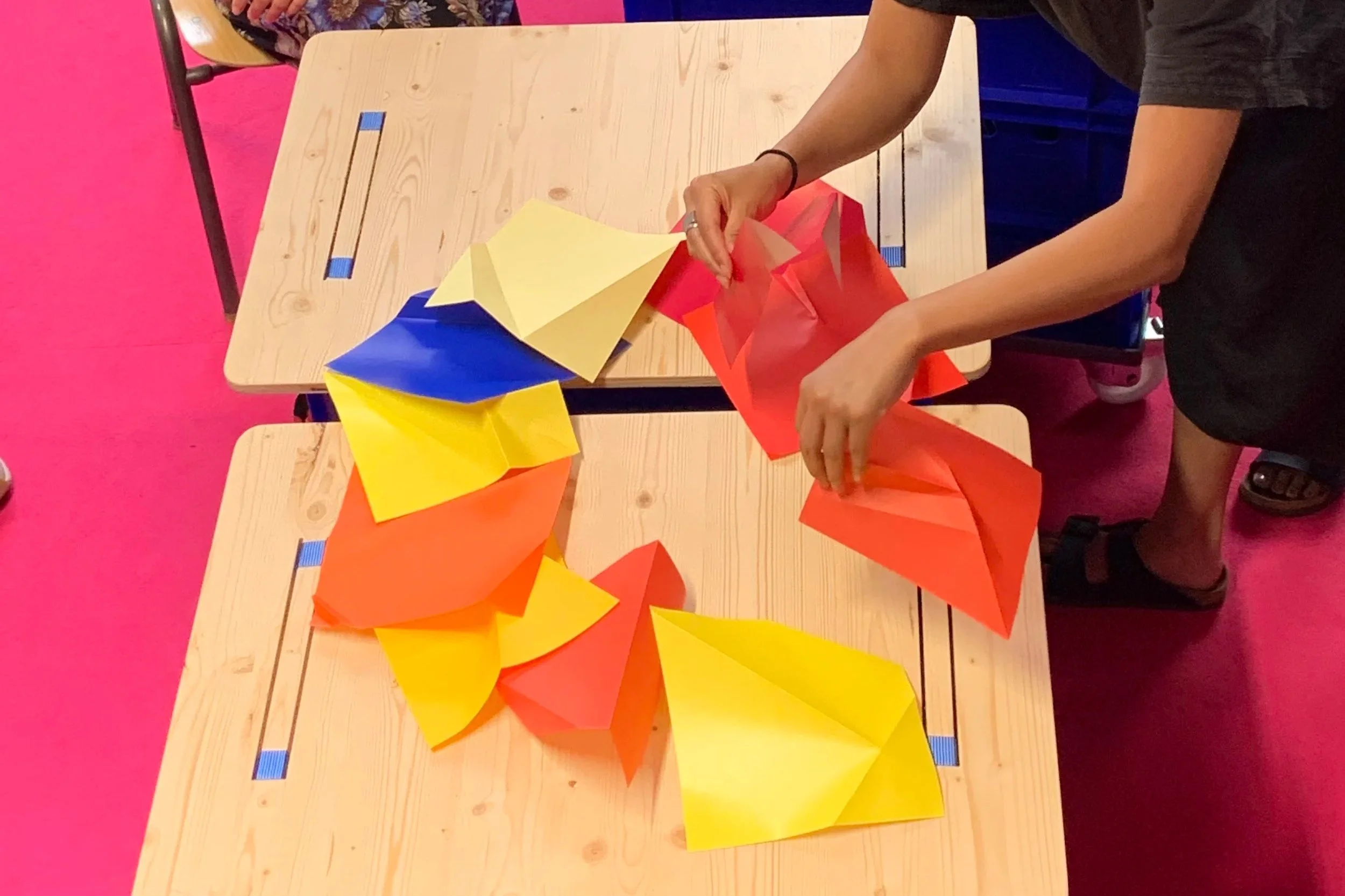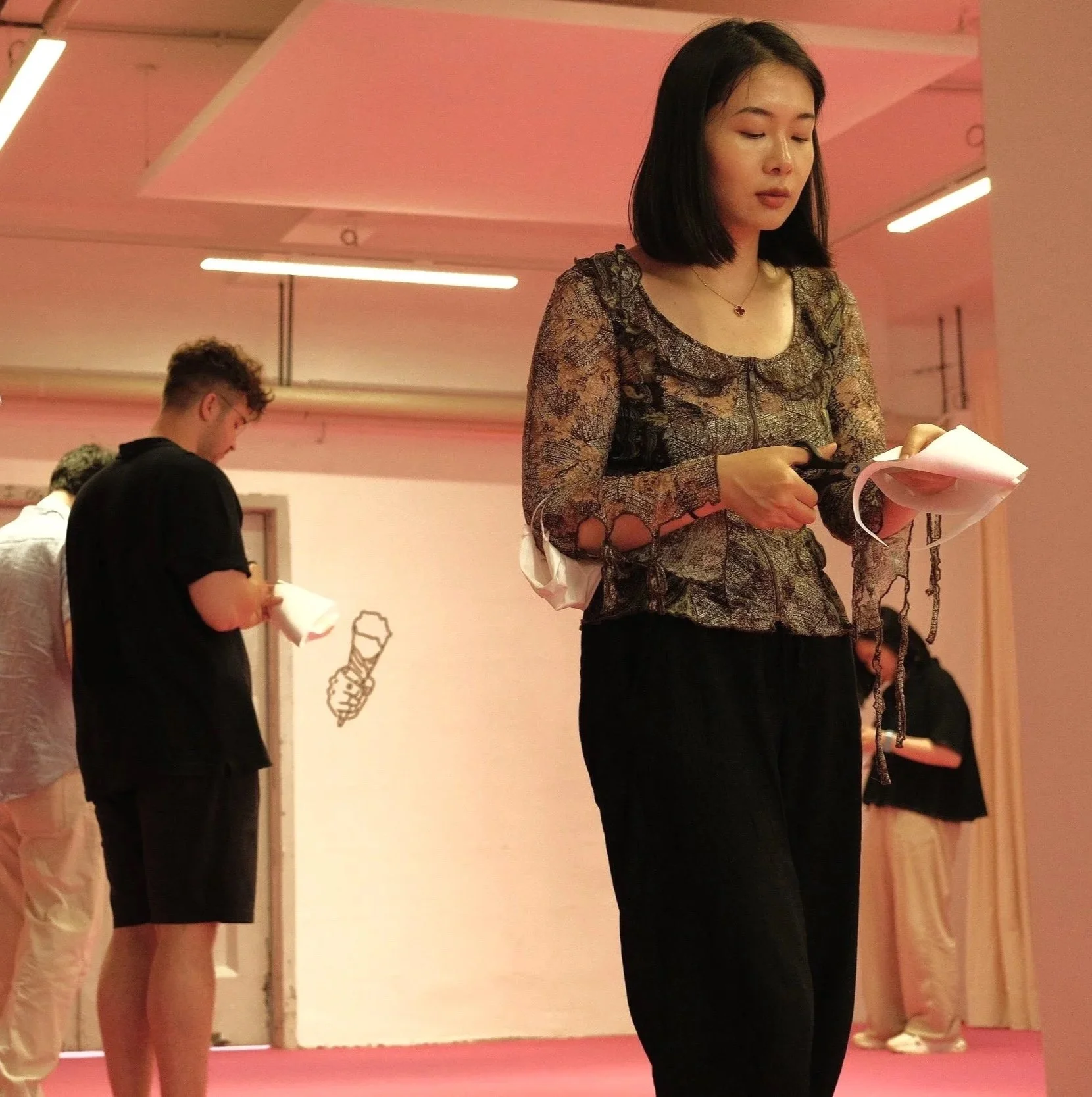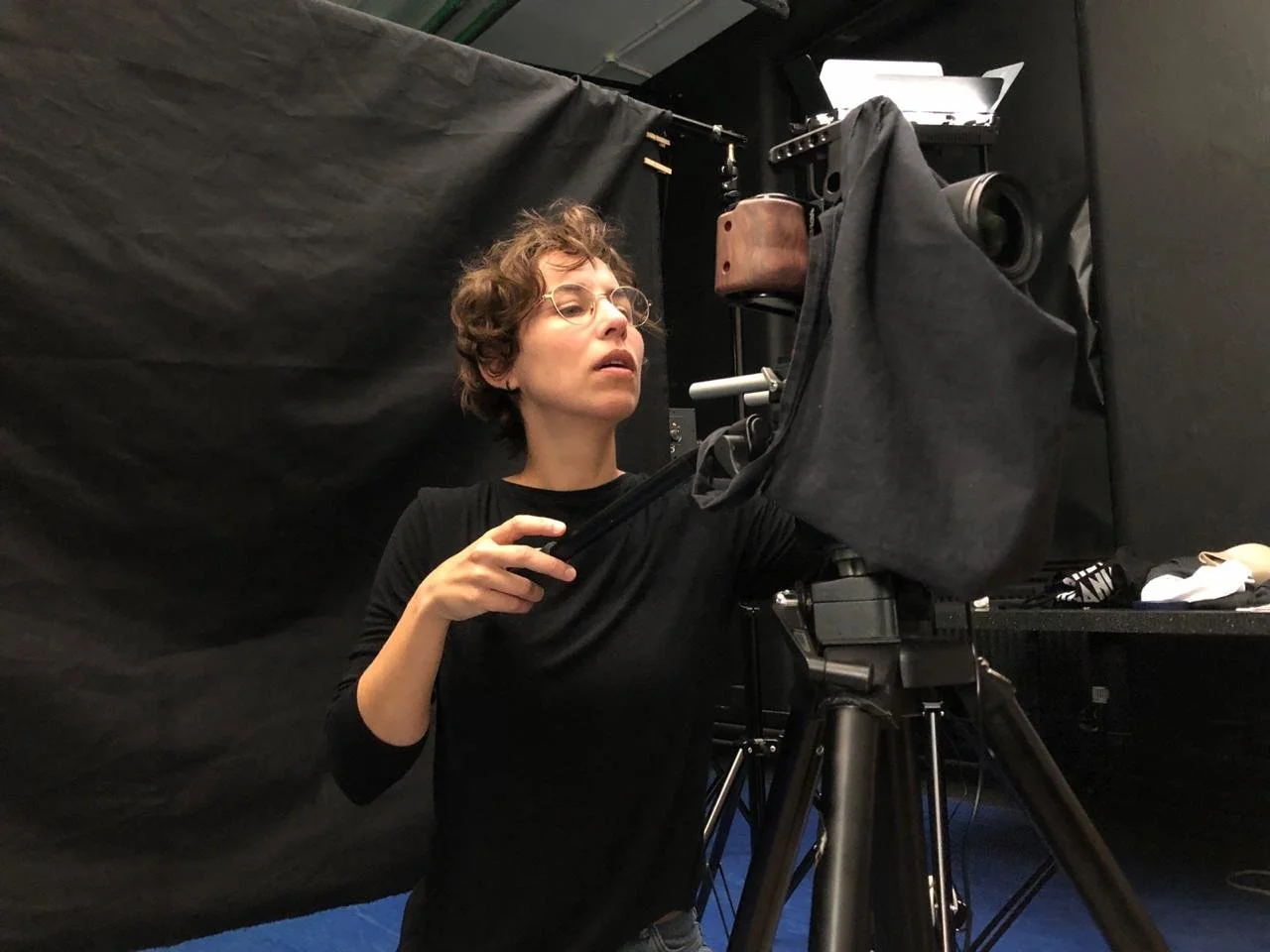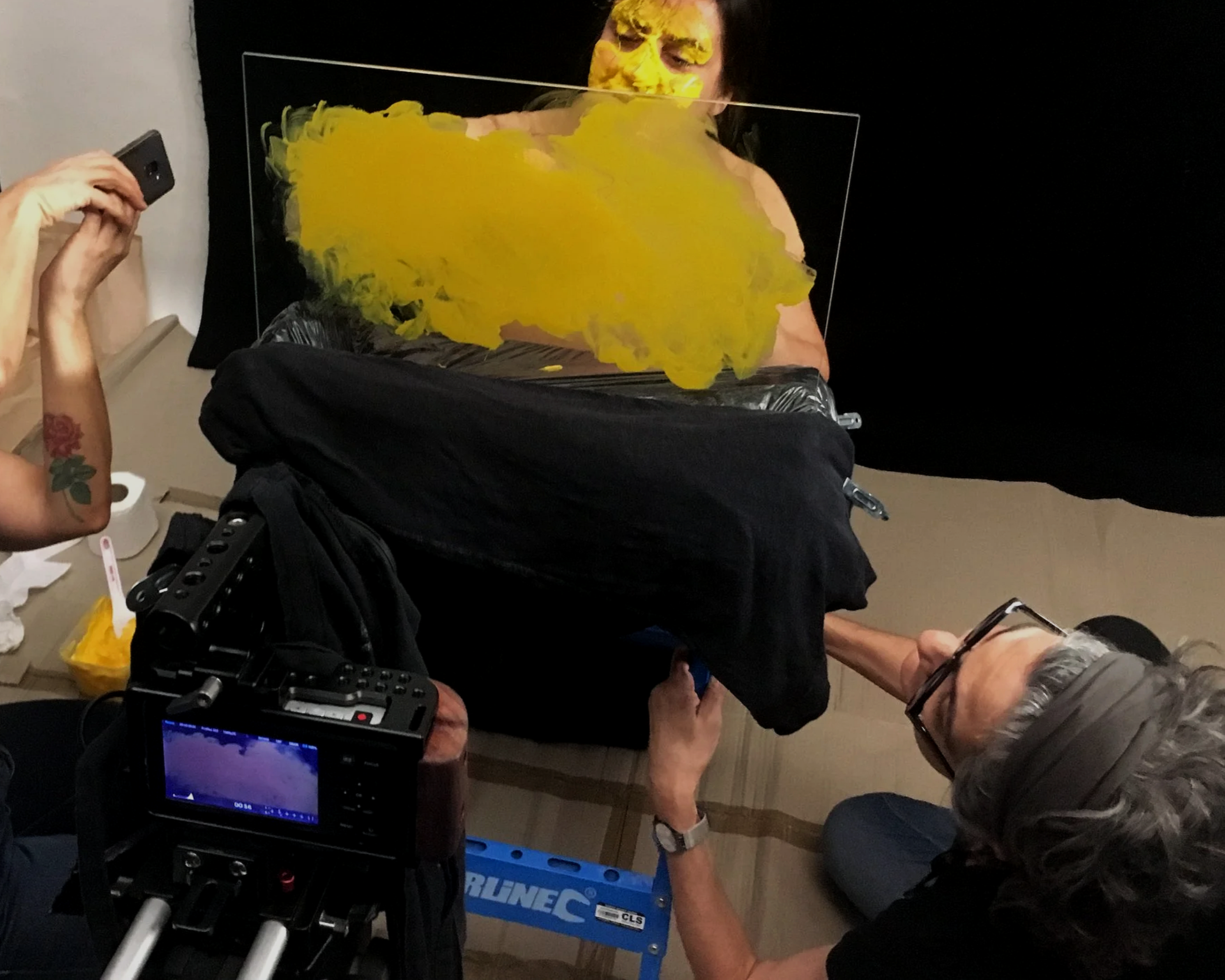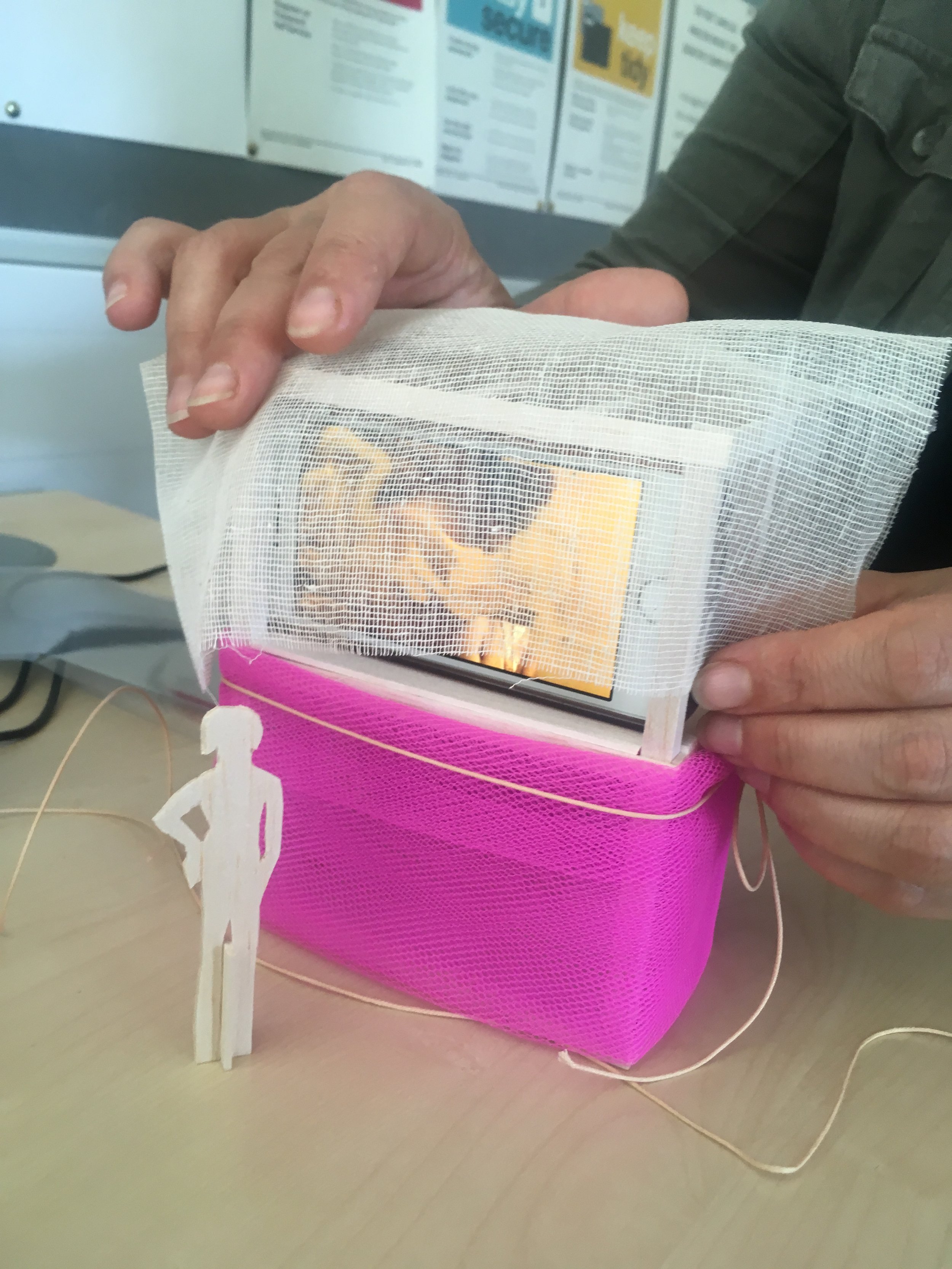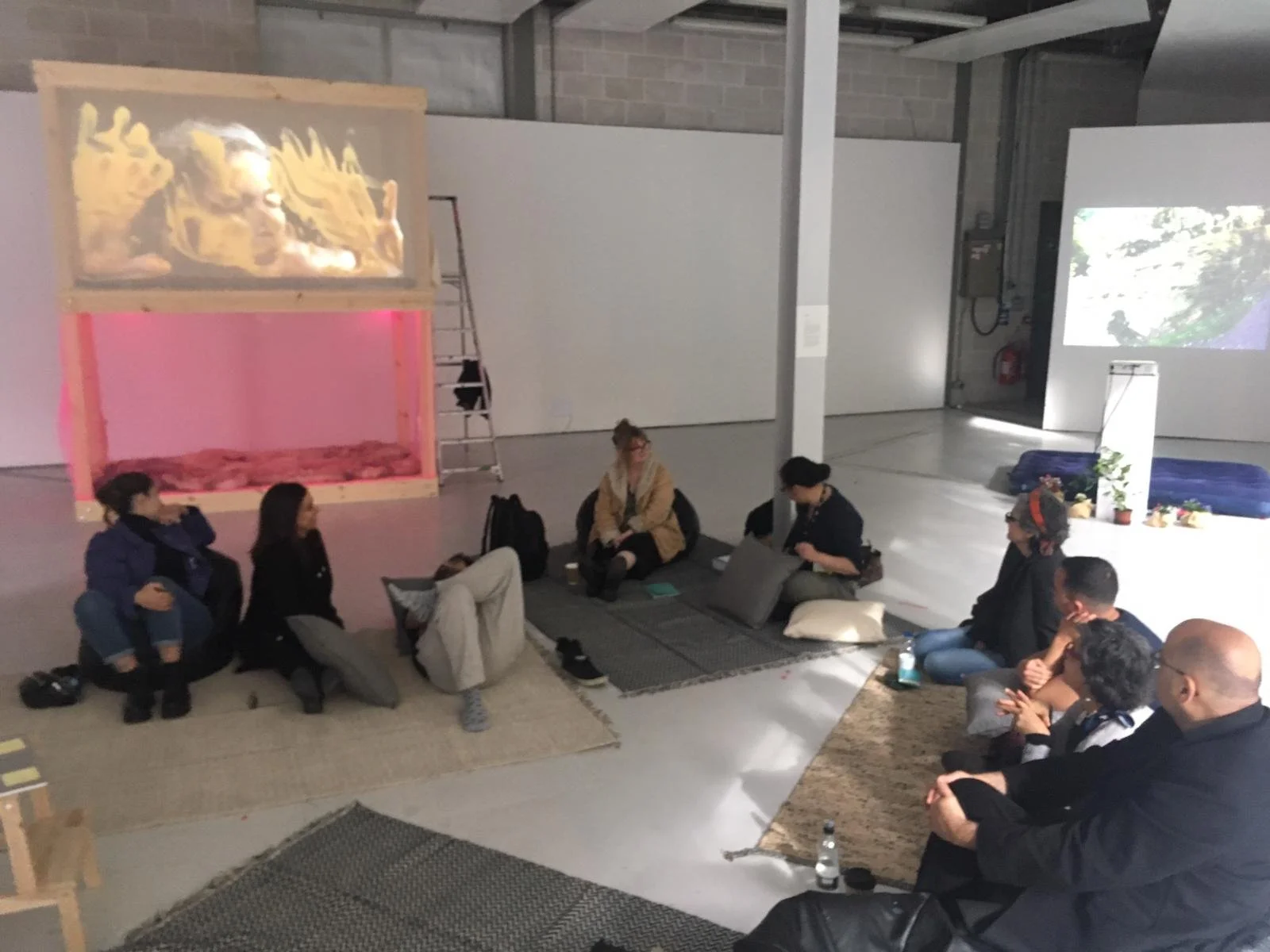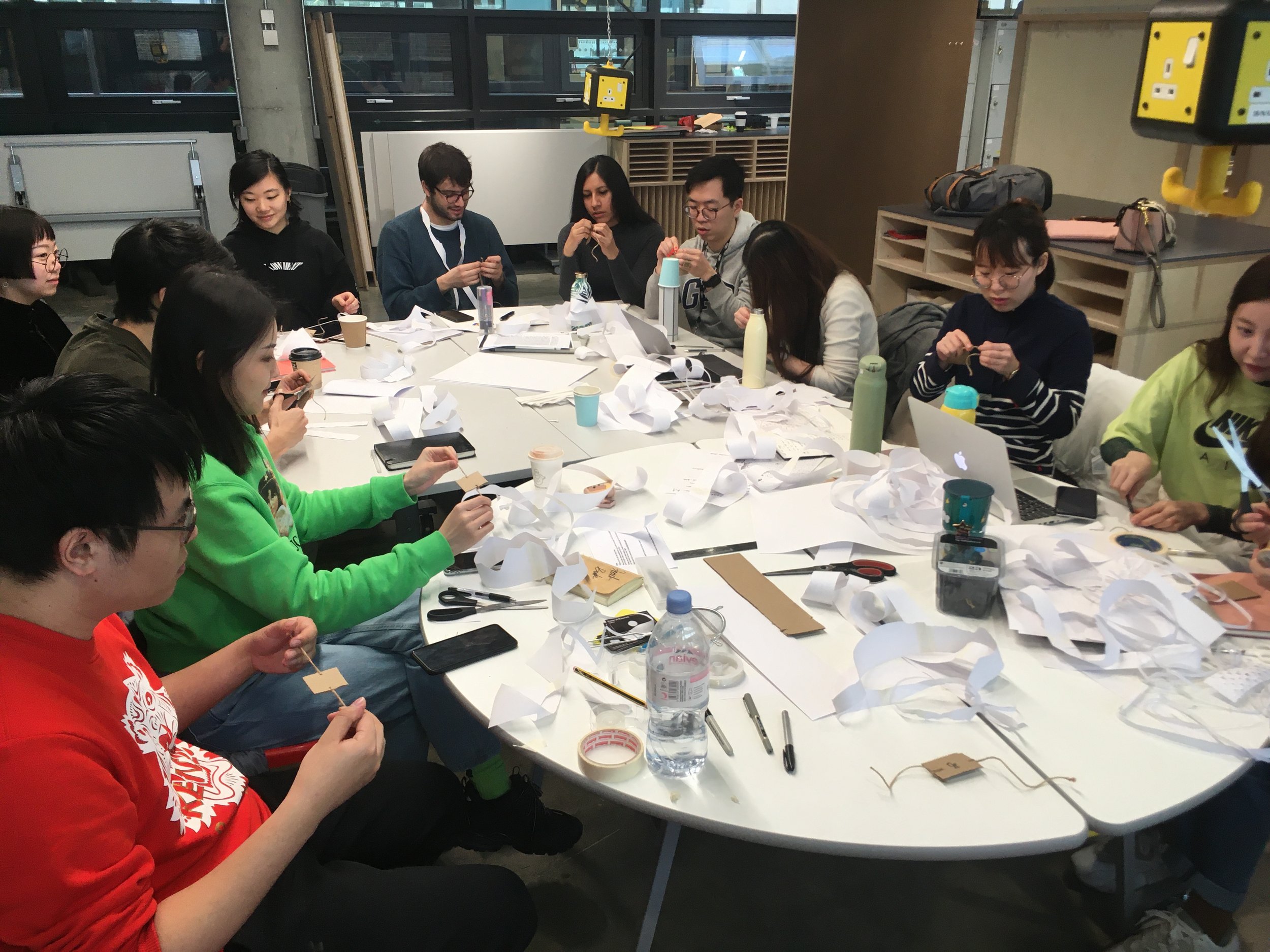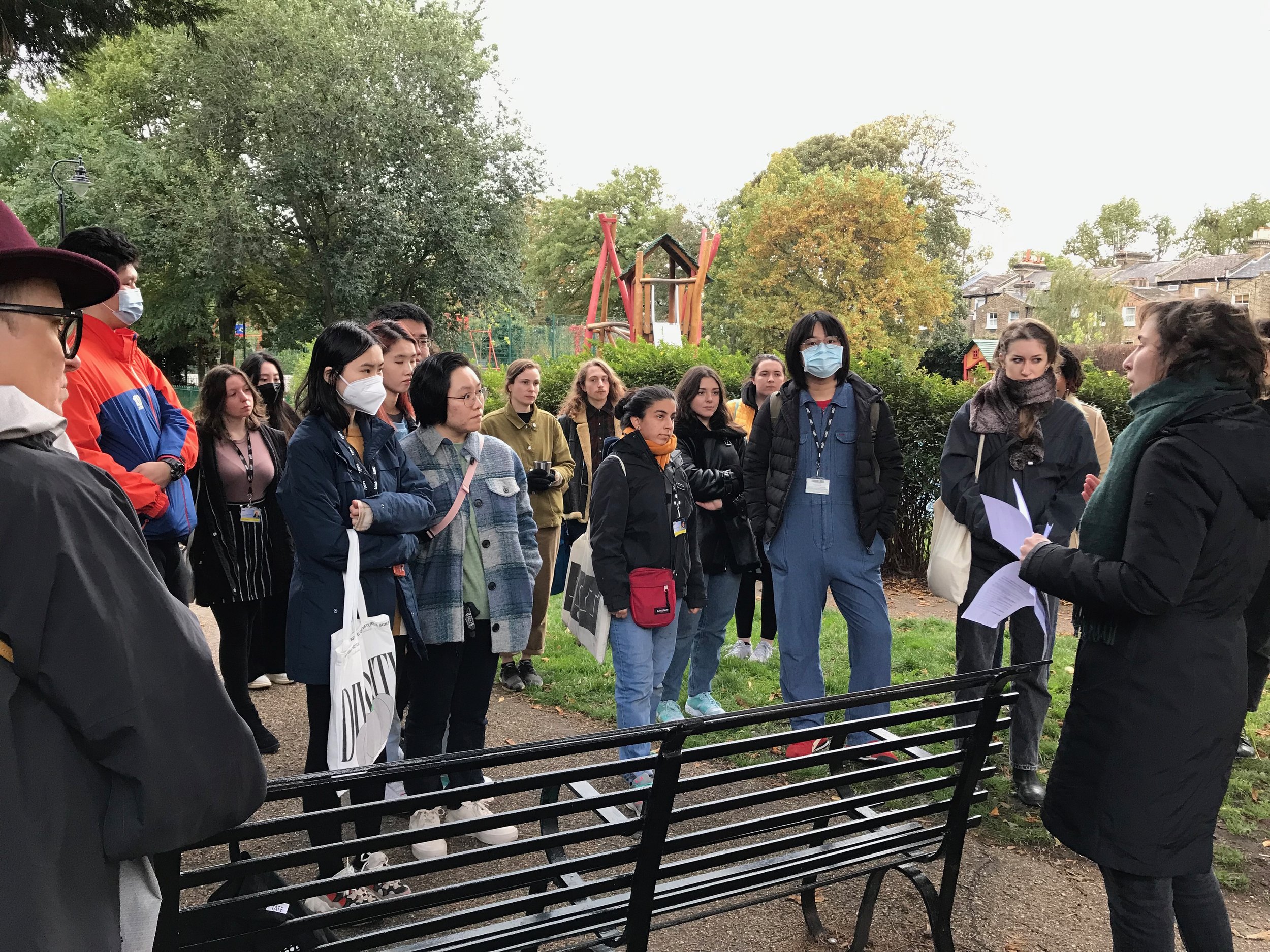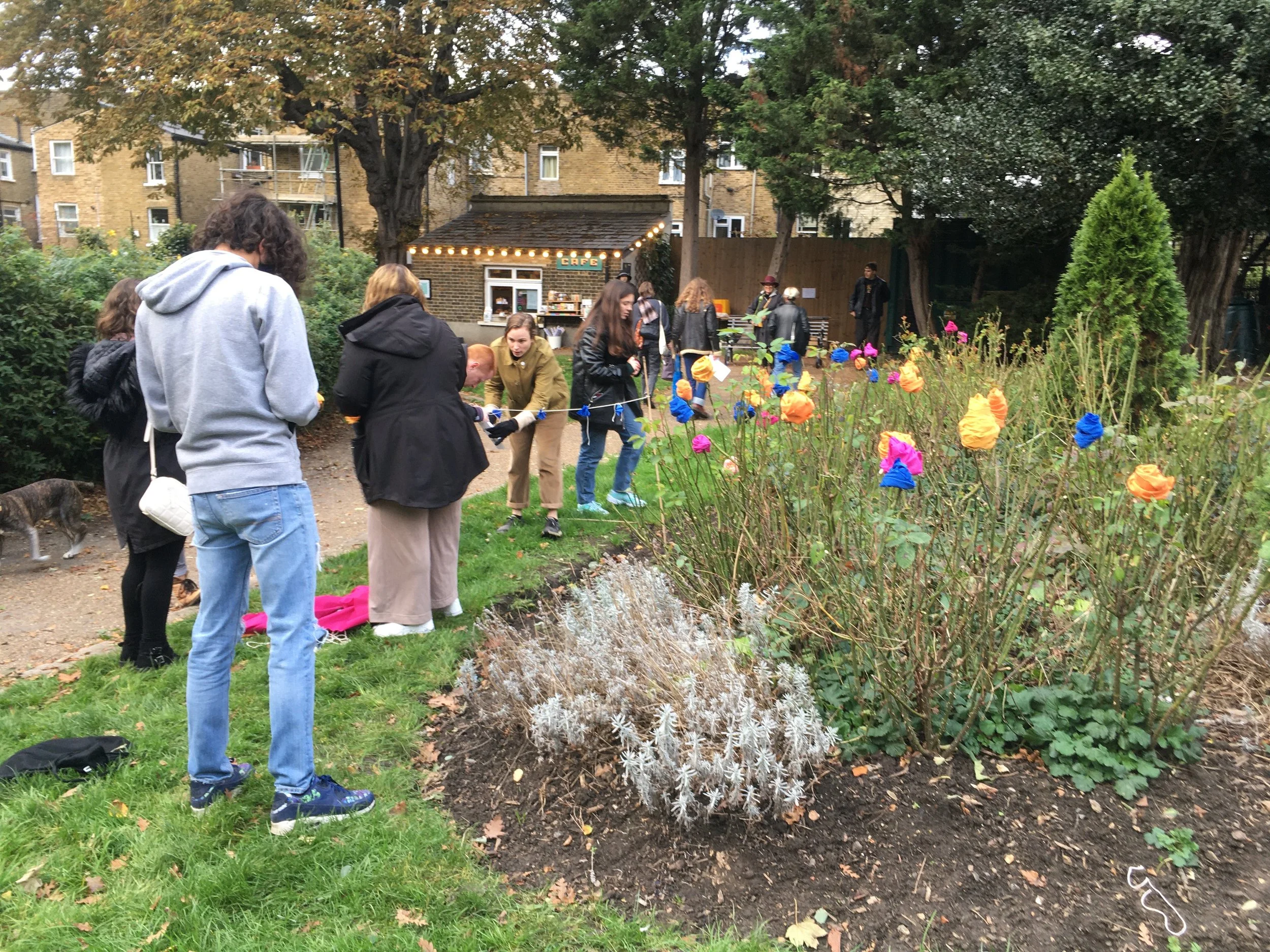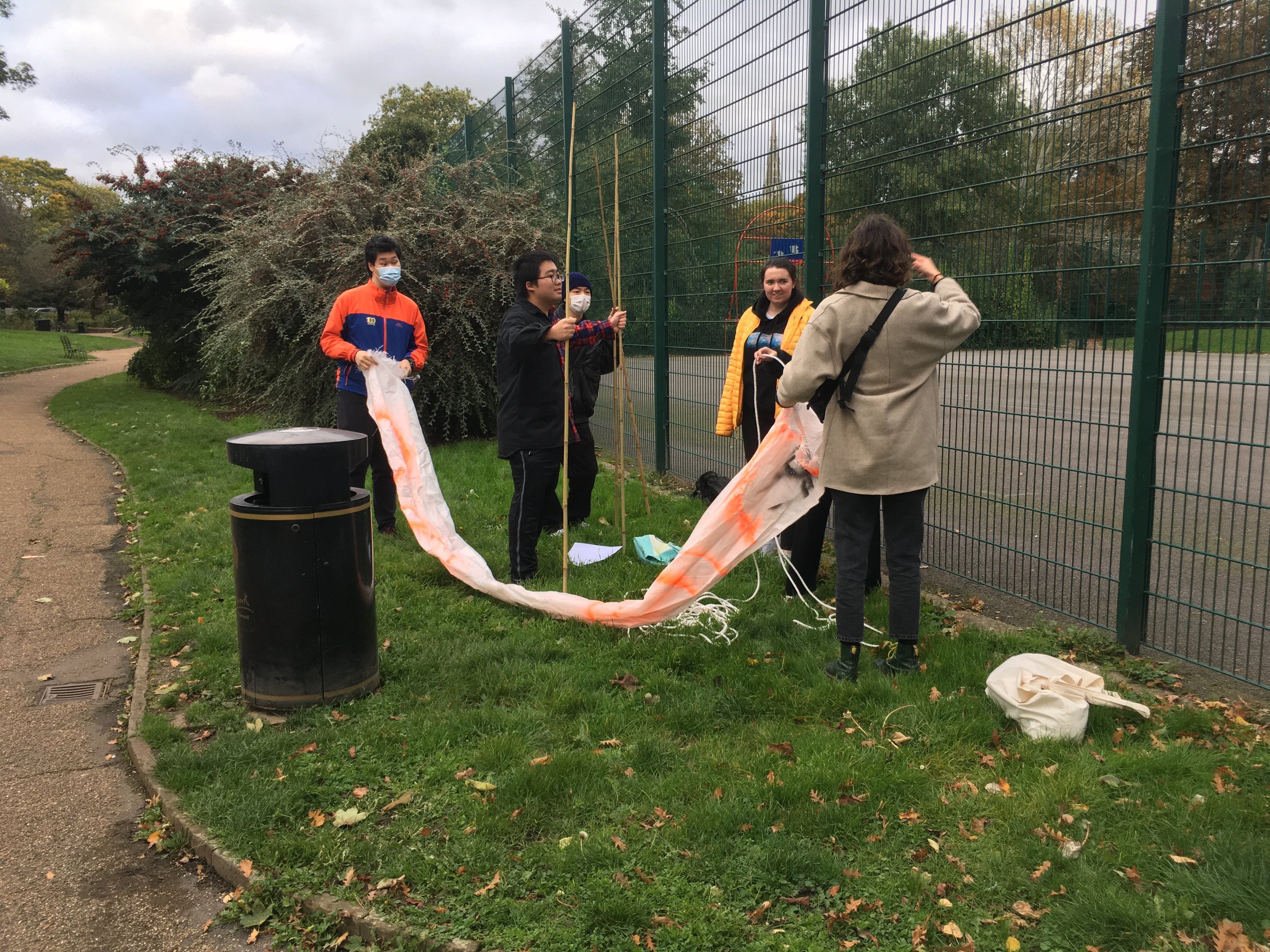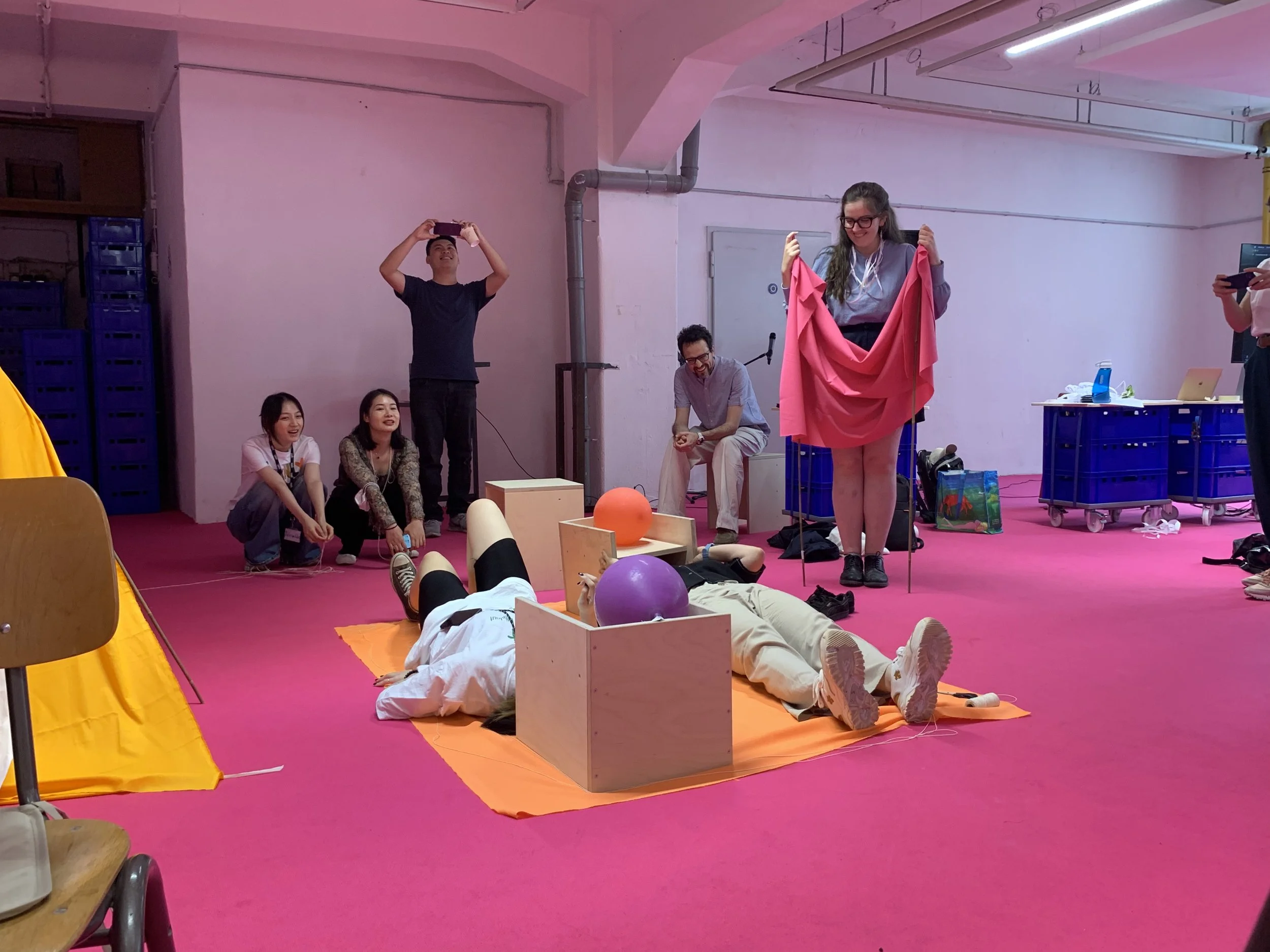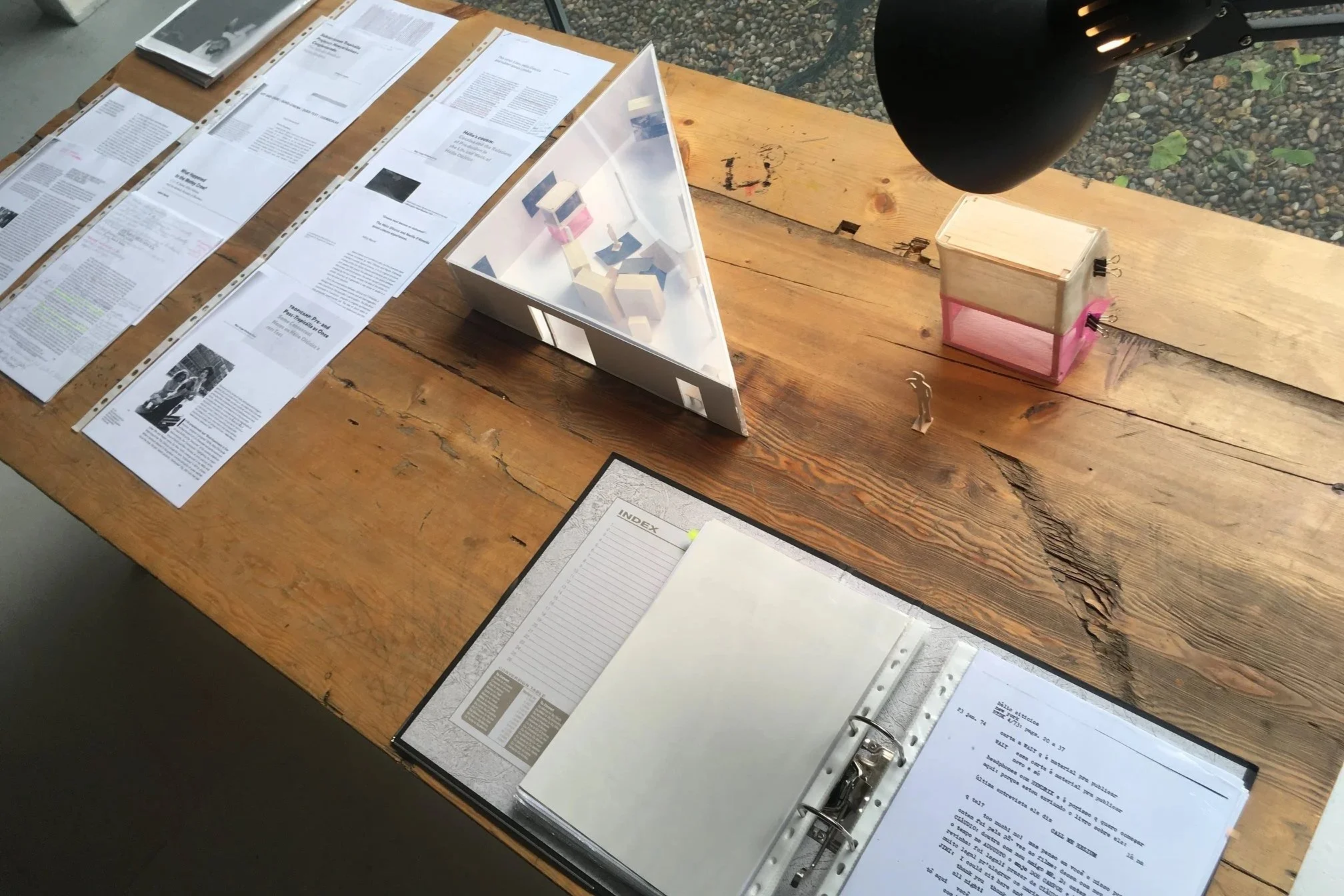
SITES OF COLLECTIVE (UN)LEARNING
Areumnari Ee, Ellen Nunes, Eric Peter, Irati Irulegi, Karina Sarkissova, Leon Filter, Polly Wright, Yen Noh (2018)
Through practising organisation, a group of eight curators, artists and researchers has worked towards a commonality of interests and intentions. But how to find unity when members stem from various professional, educational and cultural backgrounds? And how to practice this unified organisation in a roaming context—in places yet unknown? Via diverse practices arisen from a year of get-togethers, we’ve come to the structure of ‘islandthinking’ as a means to collaborate through collective knowledge.
‘islandthinking’ is a concept to be approached in poetic, social, geographical or organisational terms. Archipelagos consist of multiple islands, which in their turn can be understood in an absolute, atmospheric and socio-political sense: as structures of some mass surrounded by another mass, as climatological, or as communities distinct from the mass. ‘islandthinking’ brings these different readings together as a metaphor for interconnectedness of different notions whilst simultaneously maintaining individuality. Interdependency is a great strength in this web of relations too. Think of boat routes between islands for example, where one often has to cross through specific islands to access others. Instead of a continental, static approach, we treated projects like boat routes linking different islands. This allowed us to build a collaborative network that embraced the fluid nature of ideas, people, places and projects.
Our initiative focused on the intersection of practice and theory through critical pedagogies. The public activities included discussion forums, workshops, collective readings, a radio broadcast, printed matter, walking routes, and video screenings. We also founded the Parasite Library, a mobile library with rotating theoretical references that were activated during our public events. We established short-term collaborations with various institutions and independent spaces, including MACBA and Can Batlló in Barcelona, the Aristotle University of Thessaloniki, and The Showroom in London, Walter Bookshop in Arnhem, and State of Concept, Hot Wheels, and A-Dash in Athens.
This experience provided insights into collaborative dynamics, open experimentation, self-organization, and collective creation. These principles have become fundamental to my work.
The installation The Cage Bed of Dreams (2018-19) was a project that used Hélio Oiticica's "Barracão" as a foundation to explore collaborative artistic practice as a research method. The work aimed to connect the participants' individual practices with each other and the public, embodying Oiticica's concepts of co-existence and co-creation. Ultimately, "The Cage Bed of Dreams" established an artistic research methodology that centered on the body and lived experience as a way of creating knowledge through collaboration and participation.
Building on the theoretical framework of collaborative pedagogy and action research, I explored this methodology in my own teaching practice. I applied this approach to investigate the dialogical relationship and artistic connections between Brazilian artists Hélio Oiticica and Lygia Clark.
This research led to the development of several projects, including the "Hand in Glove" workshop, which I co-organized with Sigune Hamann and Fran Cottell in 2021. This external activity for Camberwell Fine Art students encouraged collaborative, hands-on exploration of Clark and Oiticica's conceptual framework. I also applied these ideas in the "Hand Dialogue"workshop, which I offered in 2022 as part of "CAMP: notes on education" during Documenta 15 in Kassel. Both workshops served as practical applications of my research, transforming theoretical concepts into tangible, collective un-learning experiences.

